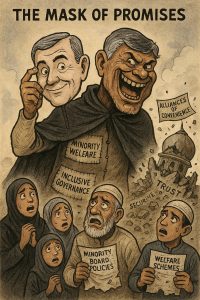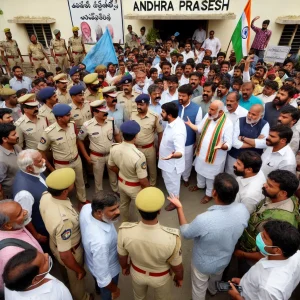
The Jagan-Adani case has become a focal point for political discussions in Andhra Pradesh, raising critical questions about governance and transparency. Allegations suggest that the Adani Group, led by industrialist Gautam Adani, offered a ₹1,750 crore bribe to former Andhra Pradesh Chief Minister Y.S. Jagan Mohan Reddy to secure favorable power purchase agreements. These claims stem from a U.S. indictment accusing Adani of bribery in India’s solar energy sector.
The YSR Congress Party (YSRCP) has dismissed the allegations, clarifying that the solar power procurement agreement during Jagan Mohan Reddy’s tenure involves 7,000 MW of power at ₹2.49 per kWh for 25 years. The phased project is set to begin with 3,000 MW in FY 2024-25, followed by 3,000 MW in FY 2025-26, and 1,000 MW in FY 2026-27. YSRCP asserts that the deal will significantly benefit the state, with waived inter-state transmission charges potentially saving ₹3,700 crore annually and offering long-term financial advantages.
Despite YSRCP’s defense, the allegations have sparked a political uproar. Opposition leaders and the public are demanding accountability, with attention now shifting to Jana Sena Party (JSP) chief and Andhra Pradesh Chief Minister Pawan Kalyan. Known for his sharp criticism of political rivals, Kalyan’s silence on the Jagan-Adani case has raised questions. Is he supporting Adani and turning a blind eye to corruption?
Pawan Kalyan has often taken strong stances on controversial issues, frequently targeting Jagan’s governance on matters such as corruption, women’s safety, and administrative failures. From criticizing YSRCP policies to defending Sanatana Dharma during the Tirumala Laddu controversy, he has built a reputation as a vocal and assertive leader.
However, his silence on the Jagan-Adani case has raised speculation, which supports Adani. Critics question whether the JSP’s partnership with the NDA compromises its stance on corruption. As the case continues to dominate headlines, Pawan Kalyan’s response, or lack thereof, could significantly raise questions and reflect a lack of leadership.




